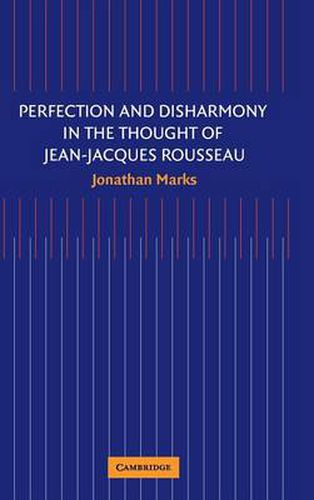Readings Newsletter
Become a Readings Member to make your shopping experience even easier.
Sign in or sign up for free!
You’re not far away from qualifying for FREE standard shipping within Australia
You’ve qualified for FREE standard shipping within Australia
The cart is loading…






In Perfection and Disharmony in the Thought of Jean-Jacques Rousseau, Jonathan Marks offers a new interpretation of the philosopher’s thought and its place in the contemporary debate between liberals and communitarians. Against prevailing views, he argues that Rousseau’s thought revolves around the natural perfection of a naturally disharmonious being. At the foundation of Rousseau’s thought he finds a natural teleology that takes account of and seeks to harmonize conflicting ends. The Rousseau who emerges from this interpretation is a radical critic of liberalism who is nonetheless more cautious about protecting individual freedom than his milder communitarian successors. Marks elaborates on the challenge that Rousseau poses to liberals and communitarians alike by setting up a dialogue between him and Charles Taylor, one of the most distinguished ethical and political theorists at work today.
$9.00 standard shipping within Australia
FREE standard shipping within Australia for orders over $100.00
Express & International shipping calculated at checkout
In Perfection and Disharmony in the Thought of Jean-Jacques Rousseau, Jonathan Marks offers a new interpretation of the philosopher’s thought and its place in the contemporary debate between liberals and communitarians. Against prevailing views, he argues that Rousseau’s thought revolves around the natural perfection of a naturally disharmonious being. At the foundation of Rousseau’s thought he finds a natural teleology that takes account of and seeks to harmonize conflicting ends. The Rousseau who emerges from this interpretation is a radical critic of liberalism who is nonetheless more cautious about protecting individual freedom than his milder communitarian successors. Marks elaborates on the challenge that Rousseau poses to liberals and communitarians alike by setting up a dialogue between him and Charles Taylor, one of the most distinguished ethical and political theorists at work today.